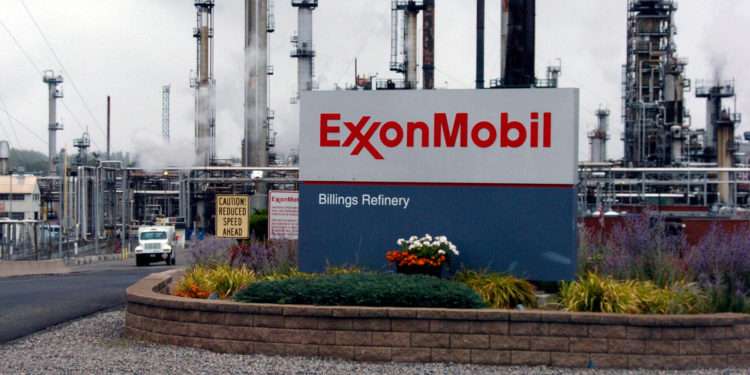US oil major, ExxonMobil, has initiated discussions with the Government to reestablish its presence in the nation’s upstream petroleum sector.
This is according to the Energy Minister, Matthew Opoku Prempeh, who made the assertion during the official launch of the 9th edition of the annual Local Content Conference and Exhibition (LCCE) organized by the Petroleum Commission in Accra on Monday, October 23, 2023, hailed the move, noting that it will enhance the country’s oil revenues.
ExxonMobil’s return to Ghana follows its exit from the country’s upstream petroleum sector in May 2021, a move that marked the conclusion of its exploration activities after acquiring rights in 2018. Minister Opoku Prempeh confirmed the ongoing talks, stating that, “ExxonMobil intends to come back to Ghana.”
Mr Opoku Prempeh underscored the strategic importance of harnessing Ghana’s oil and gas resources, noting, “God didn’t put the oil and gas there for us not to utilize.” He emphasized the need to develop local skills and talents to maximize the potential of the petroleum sector, including enhanced carbon extraction.
The annual Local Content Conference and Exhibition, scheduled from November 21 to 24, 2023, at the Best Western Atlantic Hotel in Takoradi, coincides with the 10th anniversary of the passage of the Petroleum (Local Content and Local Participation) Regulations, 2013 (L.I.2204).
This year’s event, themed “10 years of Local Content in Ghana’s Upstream Petroleum Industry: Achievements, Challenges, and Prospects,” aims to promote local content and local participation in alignment with L.I. 2204.
The conference is set to attract more than 1,000 participants, including representatives from key government institutions, civil societies, trade associations, financial institutions, academia, and international delegates from countries such as Trinidad & Tobago, Guyana, Suriname, Angola, Nigeria, Brazil, South Africa, South Sudan, Senegal, Mozambique, Uganda, Kenya, and the United Kingdom.
Government’s Policy for the Upstream Oil Industry
Meanwhile, the government’s policy for the upstream oil industry is to undertake aggressive exploration by incorporating and attracting the right partners to conduct operations to serve as a catalyst for economic growth.
That informed government’s decision to opt for direct negotiations with ExxonMobil as opposed to an open competitive tender since most oil firms have challenges operating in water depths between 2,000 and 4,000 metres.
In the deal, ExxonMobil holds 80 per cent interest, while the Ghana National Petroleum Corporation holds a 15 per cent carried interest, and the remaining five per cent would be assigned by ExxonMobil to a local partner of their choice.
Currently there are 17 active exploration and production agreements signed between the Government of Ghana and other international and local oil firms to explore petroleum resources.
In May 2021, ExxonMobil announced to the Ghanaian government that it was exiting the country’s upstream petroleum sector where it has been conducting exploration after acquiring rights in 2018.
The company’s investment was the first after a landmark ruling from the International Tribunal for the Law of the Sea (ITLOS) in favour of Ghana, following the maritime border dispute with Ivory Coast a year earlier.
It held great prospects for the country which was looking to capitalise on ExxonMobil’s experience, to build the capacity of the state-owned Ghana National Petroleum Corporation (GNPC) within four years. The goal was to help GNPC eventually learn to operate fields independently.
READ ALSO: Sustainable Management of Natural Resources Critical for Africa’s Future

















